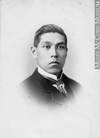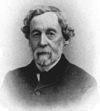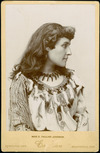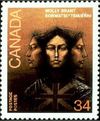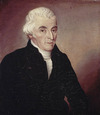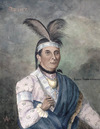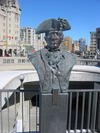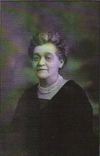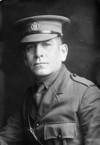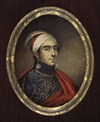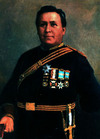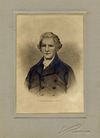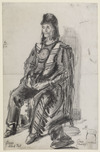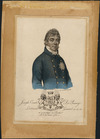1780s to join Joseph Brant [Thayendanegea*] on the Haldimand grant along the Grand River. During the War of 1812 Thomas’s grandfather Chief Peter
Thayendanegea*], where the rituals of the old league flourished. In Hale’s day the Six Nations Reserve had a population of around 3,000, including speakers of extant Iroquoian languages, a community of Munsee
Thayendanegea*] and of military and loyalist claimants for free land were trotted out as examples of the frustration of imperial policy by local officialdom. The administration of justice was singled out for
[Shakóye:wa:tha?*] at Buffalo, N.Y., in 1885 and another for the dedication of a statue of Joseph Brant [Thayendanegea*] in Brantford the following year
[Thayendanegea*], she may have been born while her parents were living in the Ohio region. John Norton* in his Journal states that Joseph was
[Thayendanegea]. The long evening provided a study in contrasts: sumptuous dining, learned conversation, heavy drinking, Indian dances, and Scottish reels. Campbell was astonished. “I do not remember I
Thayendanegea (Joseph Brant). Gradual abolition was introduced in 1793 by An act to prevent the further introduction of slaves, and to limit the term of contracts for servitude within this province
Indians at Canajoharie (near Little Falls). At the latter place he first met Joseph Brant [Thayendanegea], who after
THAYENDANEGEA (he also signed Thayendanegen, Thayeadanegea, Joseph Thayendanegea, and Joseph Brant
father emigrated from Scotland to Tryon County, N.Y., in 1773 and during the American revolution served under Joseph Brant [Thayendanegea*]. By the
[Thayendanegea*] and the Six Nations opposed the intransigent position taken by the western Indians and Alexander Mckee
Thayendanegea*]. Phoebe was a member of the Tuscarora, an Indigenous nation that joined the confederacy in 1722 after fleeing North Carolina following a war with English settlers. Her ancestors initially
Brant [Thayendanegea*] in the American Revolutionary War. Her father, Peter Smith, a prosperous Mohawk farmer, served in the 1850s as the Six
lands owned by the Six Nations occasioned a complaint to Smith by Joseph Brant [Thayendanegea*] early in 1798. By late 1801 Mallory had acquired
interpreter in the Indian Department at Niagara.
Captain Joseph Brant [Thayendanegea*] soon drew
. 28 Aug. 1863 Ellen Hill (Karakwineh, meaning “moving sun”), great-granddaughter of Joseph Brant [Thayendanegea*], and they had six
matters with Dorchester by offering Osgoode as his spokesman on two disputed questions, the lease of the Six Nations’ lands [see Thayendanegea
[Thayendanegea*]. This journey satisfied O’Soup’s long-standing desire to visit Ottawa. (“What is to be done with O’Soup?” wrote Indian agent Allan
Joseph Brant [Thayendanegea*] and the Mississauga Ojibwas for a large shoreline tract near Burlington Bay (Hamilton Harbour). Puisaye seemed to be


